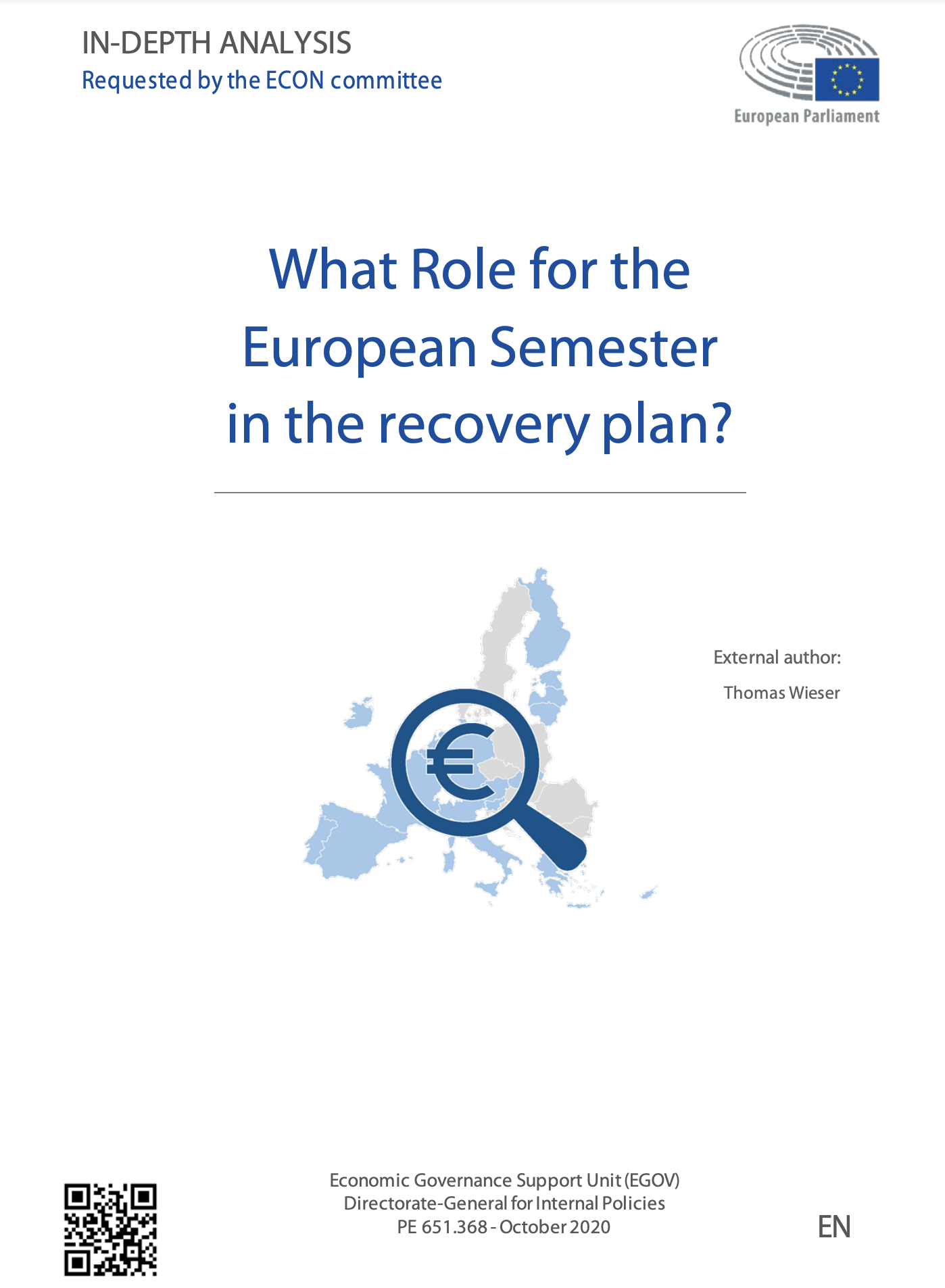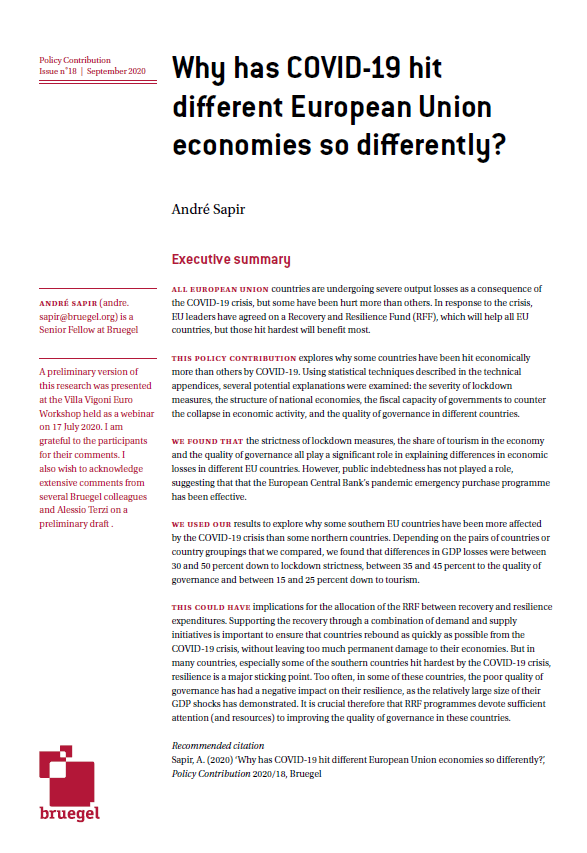Opinion

Grading the big pandemic test
COVID-19 almost one year on, it is time to assess who passed the test, and who failed.
Opinion

COVID-19 almost one year on, it is time to assess who passed the test, and who failed.
Past Event

How can the EU increase the resilience of value chains in the health industry?
External Publication


In this paper, the author looks at the implications arising from the focus of the Recovery and Resilience Plans in the context of the European Semester.
Policy Contribution

All European Union countries are undergoing severe output losses as a consequence of COVID-19, but some have been hurt more than others. Factors potentially influencing the degree of economic contraction include the severity of lockdown measures, the structure of national economies, public indebtedness, and the quality of governance in different countries. With the exception of public indebtedness, we find all these factors are significant to varying degrees.
Blog Post



Europe has a heavily bank-based financial structure, but bank-based financial structures are associated with higher systemic risk than market-based financial structures. The higher level of systemic risk in Europe suggests caution when pursuing policies that stimulate risk taking and debt creation by banks, especially in the wake of COVID-19. Priority should be given to financial diversification and equity finance.